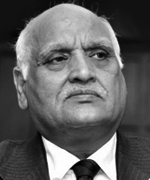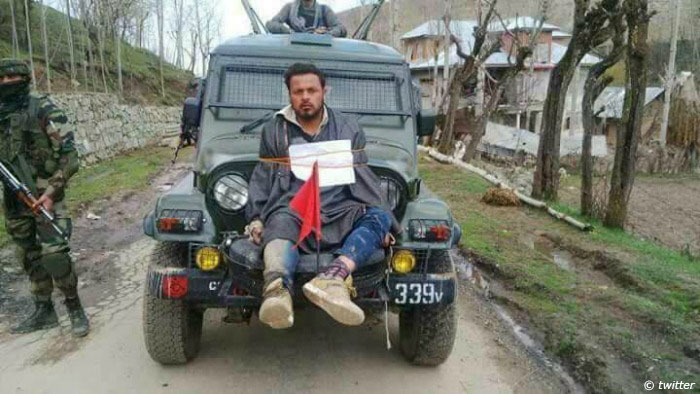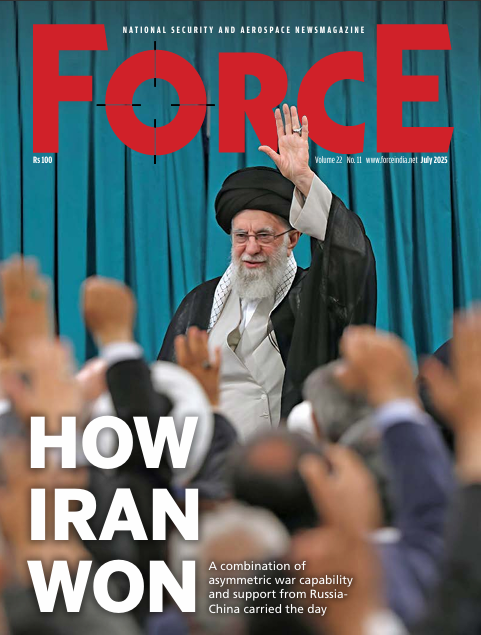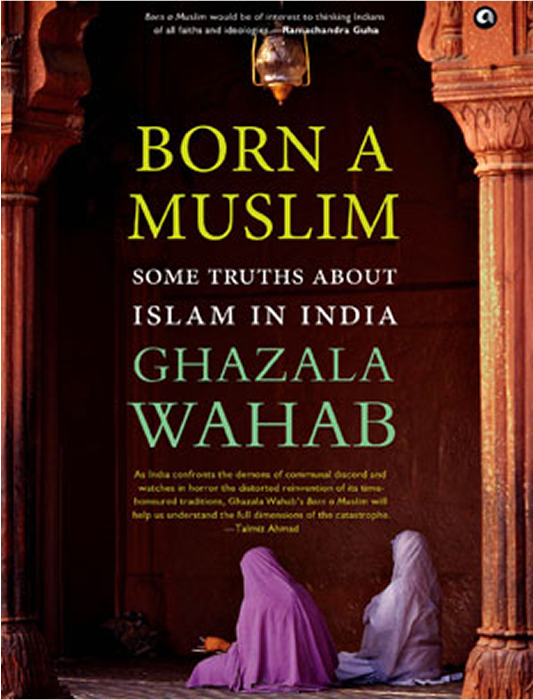Guts, Grit and Glory | Dreams of a Paradise
 Maj. Gen. Raj Mehta (retd)
Maj. Gen. Raj Mehta (retd)
It was the summer of 1998 and I was in paradise, jannat… call it what you will… in the unsullied Kashmir that the Mughal emperors, empresses, poets, courtiers, travellers, ideologues went into such raptures about. I was at the fabled Shalimar Gardens that King Praversena II built on the terraced Zabarwan mountain slopes overlooking Dal Lake while founding Srinagar in 2 BCE.
When Emperor Jahangir visited the site of the ancient, long dis-used garden in 1619, almost 400 years ago, he chose to relay the ancient site as his token of love for his beauteous Queen, Nur Jahan, expanding it to 31 acres but retaining its original name - Shalimar which in Sanskrit means ‘abode of love’. This is also the garden where the catchy Persian ‘paradise on earth’ tag-line by Sufi Poet Amir Khusro (1253–1325) became famous after Jahangir had it inscribed in the black marble pavilion atop the terraced gardens: Gar Firdaus bar rōy-e zamin ast, hamin ast-o hamin ast-o hamin ast.
So Near and Yet So Far
A Rashtriya Rifles (RR) Sector Commander who had entered South Kashmir on promotion from Deputy Commander in an RR Sector in adjoining Doda district across the Pir Panjal, it was my fourth tenure in Jammu and Kashmir. Early in the South Kashmir tenure, I had been wounded in an encounter but retained command at my special request. My area of responsibility had encounters taking place by the day.
Yet, for me and my controlling HQ, the core focus remained intense, intelligence-led operations balanced by heartfelt, well-thought-through people-related sadbhavna activities that brought the army and, critically, administration closer to the people. One realised how paradoxically complex and heartbreakingly simple the problem of peace and tranquillity was, and how Kashmir’s continuance as a paradise could be sustained if the people remained our focus. Paradise isn’t only about hills, water, climate, it’s really about people.
I knew I faced a populace of which considerable portions were estranged. How could I reduce that estrangement and yet control terrorism? That was my overwhelming challenge and I unexpectedly found the answer in Kashmir’s gardens; in specific on the verdant lawns of the feisty Pehalgam Club.
Sitting on the club lawns by the banks of the swiftly flowing ice-cold Lidder as it debouches from the high Himalayas, I was planning a student-driven sadbhavna initiative with eager young Kashmiri friends when Eureka happened: A big, picnicking Kashmiri joint family was bursting with infectious happiness; with innocent, cheerful laughter. The elders sat on durries under the regal Chinars enjoying the gentle Chinar-and-fir-scented breeze and children including teenage girls chased each other around the Chinars and shallow crystal-clear water channels with abandon and glee, splashing cold water on each other. It made a pretty sight watching them have fun in delicately etched phirans and rolled up shalwars while their elders looked on indulgently as the wazaa (cook) ladled out traditional Kashmiri non-vegetarian wazwan in shared tramis (plates) and almond-laced kehwa. They were in paradise and were happy even if that happiness was ephemeral. The wistful expressions of the phiran-and-jeans-clad young men with me said it all. They all longed for happiness.
Need for Positivity
A newly emerging branch of study, ‘positive psychology’, has to do with controlling one’s perception of the world. Positive psychology says that in order to be successful, one must perceive the world in a positive light. This means controlling one’s thoughts, feelings, and outlook on life. This, I realised, was clearly missing from Kashmiri lives outside that fleeting slice of happiness that a picnic had brought. More importantly, the army, administration, the Central Police Organisations/Paramilitary Forces (CPO/PMF) also needed to be happy and positive in order to engineer the return of paradise.

A brusque radio message, however, made me return to reality: an encounter was on, one of my men wounded, a terrorist shot. Paradise could wait, I thought, as I returned to reality.
The thought, however, remained with me, guiding that tenure and two later tenures in the Valley; it still dominates my mind even in this season of exceptional angst, loss, frustration and unhappiness. We need to keep focusing on reaching out and not let temporary setbacks cloud our thinking for attaining Eden. At the same time, anti-Indian activity has to be firmly and wisely handled.
The Burhan Wani Effect
Thirty years on from 1987, when it appeared clear that the Indian State had brought the proxy war down to manageable levels and signs of democratic normalcy (high voter turnout; responsive governance) were evident, a sobering realisation has dawned that terror works in ebb-flow cycles controlled by complex internal and external influences.
Since July 2016, a Machiavellian, Pakistan-sponsored largely home-grown upsurge is evident and the Burhan Wani effect is its worrisome face. A social media ‘hero’ who, in popular perception, became a charismatic symbol of young struggle, the man who is not known to have ever entered into combat, has, in death become symbolic of the Kashmiri youth struggle to be heard/appreciated.
Twenty-one-year old Afshan Ashiq, social media’s much-retweeted-girl-in-blue, a second year undergraduate student in Government Women’s College Srinagar and an up-market Bemina resident, is an excellent football player who dreams of making it into the national team. She coaches young female footballers and was accompanying them for practice in Srinagar’s Pratap Park when she was driven to stone throwing; an activity hitherto restric
Subscribe To Force
Fuel Fearless Journalism with Your Yearly Subscription
SUBSCRIBE NOW
We don’t tell you how to do your job…
But we put the environment in which you do your job in perspective, so that when you step out you do so with the complete picture.








